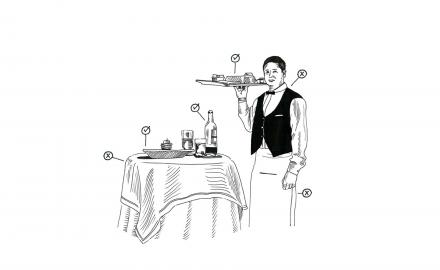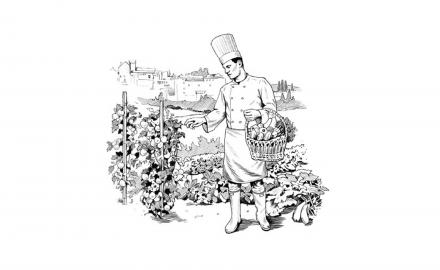N°3 Creating emotions, for an unforgettable user experience
Experiential marketing is becoming something of a phenomenon, particularly in the hospitality industry. Philomène Bayet-Robert, a French research professor at the Paul Bocuse Institute who specialises in experiential marketing applied to gastronomy, gives us an outline of the concept.
WHAT DO WE CALL ‘EXPERIENTIAL MARKETING'?
The notion of ‘consumption experience’ was developed in the 1980s. Experiential marketing is a blanket term coined to refer to all techniques based on this notion. For instance, Patrick Hetzel thinks that experiential marketing revolves around the fact that consumers are looking to discover new experiences that allow them to escape their daily lives and make them dream.
The idea is to surprise consumers by presenting them with an unusual experience that will produce a rupture – causing a wow effect, stimulating their senses and creating a bond and making it possible for the brand to capitalise on its image. ‘Extraordinary’ is truly the core concept of experiential marketing. This concept is perfectly illustrated by the Parisian restaurant Dans le Noir (literally In the Dark), which provides customers with a highly sensory dining experience: meals are served in complete darkness by visually impaired staff.
This decidedly singular restaurant offers the perfect opportunity to redefine your perception of taste! Establishing a close relationship between the product or the service and the customer is very challenging for brands and businesses, even more so when customers have the possibility to partake in the experience. The notion of bond is quite essential in experiential marketing: the more interaction you are able to generate, the more emotions you create, resulting in higher brand loyalty, which is a key parameter in an ever more competitive environment. Agapé Substance, a gastronomic restaurant, has chosen to sit customers around an open-kitchen counter top. This configuration is a way of associating diners with the symphony that is being played in the kitchen, by letting them exchange with the chefs and view how the dishes are prepared.
WHAT ARE THE LEVERS TO IMPLEMENT EXPERIENTIAL MARKETING?
Experiential marketing relies especially on staging and sensory stimulation. They can be achieved through conscientious design, music, scent diffusers, etc. However, there is no one-fit-all formula. The concept must be elaborated based on the target audience, to make sure that customers will respond. At Paris-Charles de Gaulle Airport, travellers can discover a restaurant named The Place, which was entirely designed to create a relaxing environment where diners can enjoy their meal in a feng-shui atmosphere with soothing lighting. In this instance, the experience is perfectly suited to what potential customers look for.
IN WHAT WAY IS THE HOPITALITY BUSINESS A PERFECT MATCH FOR EXPERIENTIAL MARKETING?
Service-based businesses are particularly well suited for experiential marketing. Providing customers with a service means experience creators need to profile customers, and identify their expectations and needs. They need to gain insight into their customers in order to align the experience with customer expectations. Gastronomy is one of the few industries where all five senses are directly engaged. Thanks to growing publicity on blogs and culinary shows, this new type of taste marketing is gaining momentum. And its best ambassadors are those try try the experience and share it with others!
WHAT DO YOU TEACH AT THE PAUL BOCUSE INSTITUTE?
I teach marketing and management, with a focus on consumer behaviour and consumption experience. Theoretical definitions and case studies allow students to gain a good grasp of experiential marketing. Those teachings are complementary to the fundamentals of marketing applied to hospitality and the methods for concept creation, which are taught at the Paul Bocuse Institute.
Realize with Institut Paul Bocuse



